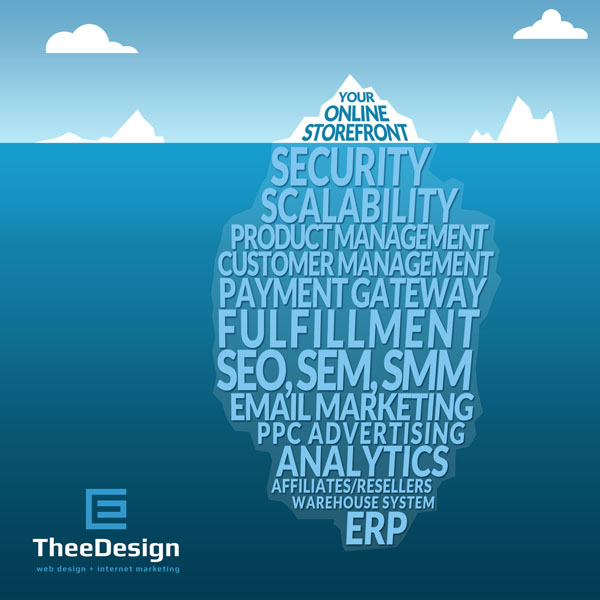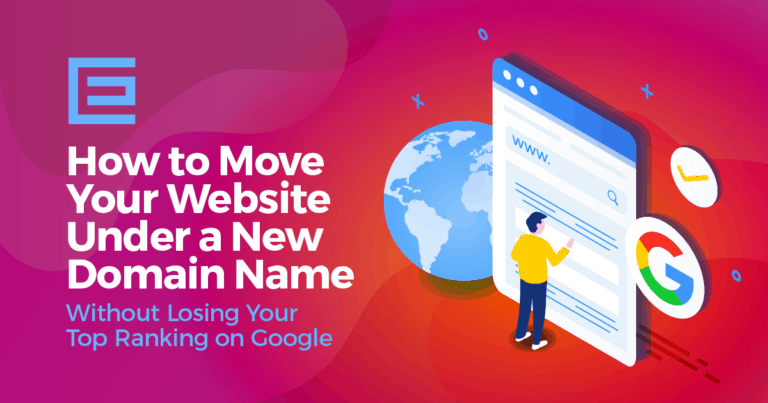Whether you are a start-up company or an established retailer, developing a successful e-commerce business is not easy or inexpensive. There are many considerations that must be measured before deciding on a platform that best fits for your business requirements. Development costs, operational costs, maintenance costs and ongoing marketing costs must all be part of developing a realistic budget. Like any other type of business, it takes money to make money.
Over the years, we’ve worked with a wide range of companies, varying from small to large, to plan and execute e-commerce websites. The initial conversation is almost always the same and starts with excitement until they realize how much is involved. Most folks underestimate e-commerce both in terms of the level of investment and the resources necessary to operate a viable website. In order to be successful, it takes a continual investment in strategy, development, marketing and customer service.
Building An E-Commerce Website – The Tip of the Iceburg
For now, let’s forget about the important things below the surface: constant online advertising, search engine marketing, social media marketing and affiliate/reseller programs. Let’s talk about building the thing visitors see and USE when they finally reach you – the site itself. E-commerce platforms vary widely depending on the type/number of products you sell, the level of sophistication/customization the site requires, any third-party or back-end system integration necessary and the amount traffic you forecast. Many times an e-commerce website encompasses many technology solutions working together. After we evaluate these factors and other business requirements, we can then determine if a hosted solution or software as a service (SaaS), or a custom solution is right for your online business. Let’s cover the differences between the two.Hosted E-Commerce Solutions – Renting Your Iceburg
Most hosted e-commerce platforms have a relatively low cost-to-entry. Providers such as Shopify, Big Commerce and Volusion have tiered monthly pricing levels depending on features, the number of products you wish to sell and the amount of traffic (bandwidth) you expect. Hosted solutions are a good option if you require no customization and are comfortable configuring the multitude of options that are available. Advanced features like integration with external systems (CRMs, QuickBooks, etc.) can be difficult and may require additional costs. With hosted solutions, you pay for the use of the providers’ software and only own your content/data. You cannot alter or modify their code to customize the functionality of the website. You may be very restricted to design customizations and most times are required to select a free template or purchase a premium template with limitations. For example, Shopify has created their own programming language for customizing templates that is complicated to learn. Hosted solutions are good for clients with smaller budgets, fewer products, no need for customizations and requiring a quick launch time. The major disadvantage with this approach is that you must fit your business into a pre-built system with design restrictions and that may not have all the features you need.Custom E-Commerce Solutions – Owning Your Iceburg
The quick and cheap route gets you out there but doesn’t equal long-term success. Custom-developed, self-hosted e-commerce solutions requiring unique functionality and compelling design are good for clients that have unique business requirements and want greater control over their site. Custom functionality like advanced search features, custom product configurations (like personalizing a product with a name or image) or integrating the website with an in-house inventory management or accounting system are all examples of custom-developed solution requirements. First impressions are always important and an e-commerce website with a professional look and feel is critical to converting visitors to sales. We always recommend a custom design over a pre-made templated website for serious e-commerce clients. There are many open-source (no license costs) solutions that work well for small businesses up to larger enterprises. We recommend WooCommerce and Cart66 for WordPress for businesses with smaller budgets and Magento for more ambitious, larger clients.Which Is Right For My Business?
There are pros and cons to each approach and it’s true that you do get what you pay for. No matter which path you choose for the development of your e-commerce business make certain that you choose an experienced, reliable and accessible partner.Tags: Ecommerce • Web Design


